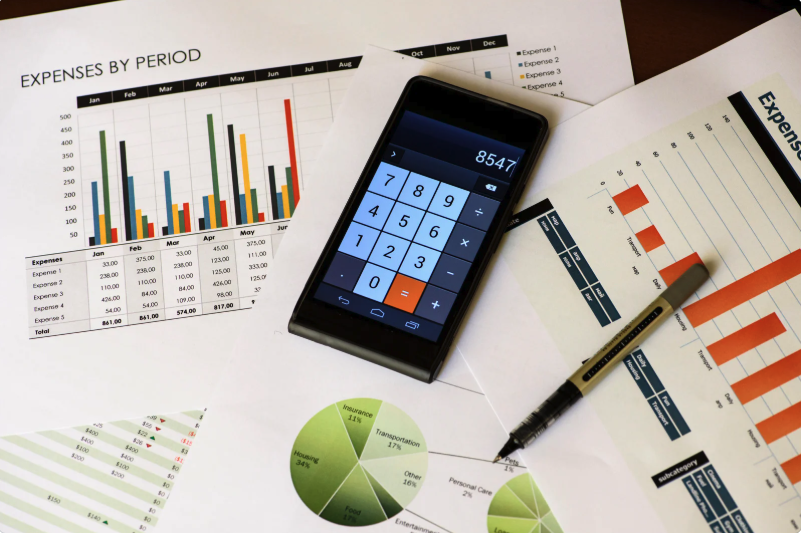The Psychology of Big Spending: How to Make Smarter Decisions
Big spending decisions often come with a mix of excitement and anxiety. Whether you’re buying a luxury item, upgrading your home, or considering online boat loans for your dream vessel, understanding the psychology behind big purchases can help you make smarter, more informed choices. By recognising the emotional and cognitive factors at play, you can avoid impulsive decisions and stay aligned with your financial goals.
Here’s how to approach big spending with a clear mindset and practical strategies for making smarter decisions.
1. Understand the Emotional Triggers Behind Big Spending
Big purchases are often tied to emotional triggers that can cloud your judgement. Common emotions driving spending include:
Status and Identity
Many people buy high-value items to signal success or improve how they’re perceived by others. For example, luxury cars or designer clothing may be seen as markers of status.
Reward and Gratification
A big purchase might feel like a reward for hard work or a way to treat yourself after a stressful period.
Fear of Missing Out (FOMO)
Limited-time offers, sales, or the fear of losing an opportunity can push people into making impulsive decisions.
Recognising these emotional triggers helps you pause and evaluate whether your spending decision is rational or emotionally driven.
2. Create a Financial Plan for Big Purchases
Having a clear financial plan ensures that big spending aligns with your long-term financial goals. Planning helps you avoid the regret or stress that can come with poorly considered purchases.
Steps to Create a Plan:
- Set a Budget: Determine how much you can afford to spend without compromising other financial priorities.
- Research Options: Compare prices, financing options, and alternative products to find the best value.
- Save in Advance: Build a dedicated savings fund for your purchase to reduce reliance on credit.
Planning ahead also gives you time to weigh the pros and cons of the purchase, ensuring it’s a thoughtful decision.
3. Be Mindful of Cognitive Biases
Cognitive biases can influence how you perceive and justify big spending decisions. Being aware of these biases helps you avoid costly mistakes.
Common Biases to Watch For:
- Anchoring Bias: Focusing too heavily on the first price you see, even if better deals exist.
- Sunk Cost Fallacy: Continuing to invest in something because you’ve already spent money on it, even when it’s no longer the best choice.
- Optimism Bias: Overestimating the benefits of the purchase while underestimating potential downsides.
Challenging these biases can lead to more objective decision-making.
4. Ask Yourself the Right Questions
Before committing to a big purchase, take a moment to reflect on your motivations and the potential impact.
Key Questions to Consider:
- Do I Need This?: Is the purchase essential, or is it driven by impulse or emotion?
- Can I Afford It?: Will this purchase strain my finances or jeopardise other goals?
- Will It Add Value?: Consider how the purchase will improve your quality of life or fulfil a specific need.
By answering these questions honestly, you can determine whether the purchase is truly worth it.
5. Explore Financing Options Wisely
If you’re unable to pay for a big purchase upfront, financing can be a practical solution—provided it’s done responsibly.
Tips for Financing:
- Compare Interest Rates: Look for low-interest options to minimise the cost of borrowing.
- Evaluate Loan Terms: Choose terms that fit comfortably within your budget.
- Avoid Over-Borrowing: Only borrow what you need, even if you qualify for more.
For instance, if you’re exploring online boat loans, ensure you understand the repayment terms and select a loan that aligns with your financial situation.
6. Delay Gratification to Avoid Impulse Purchases
Impulse purchases are often driven by the immediate desire for gratification. Delaying the decision gives you time to reflect on whether the purchase is genuinely worthwhile.
Strategies to Delay Gratification:
- Wait 24 Hours: Take a day to think it over before committing to a large expense.
- Visualise Alternatives: Consider how the money could be used elsewhere, such as saving or investing.
- Set a Rule: Create personal spending rules, such as only buying after thorough research or consultation.
Pausing before making a decision helps you avoid buyer’s remorse.
7. Learn From Past Purchases
Reviewing your past big spending decisions can provide valuable insights into your habits and help you make better choices in the future.
Reflect on:
- Successful Purchases: What made them worthwhile, and how did they align with your goals?
- Regrettable Purchases: What led to the decision, and how could you have avoided it?
- Lessons Learned: Use these experiences to refine your approach to future spending.
Acknowledging past experiences allows you to build better financial habits over time.
By understanding the psychological factors behind big spending and implementing practical strategies, you can make smarter decisions that support your financial health and personal goals. Taking the time to plan, reflect, and act thoughtfully ensures you get the most value from your hard-earned money.







